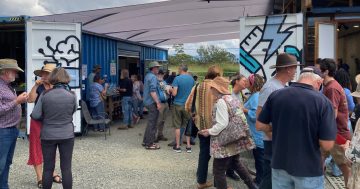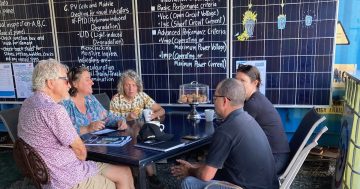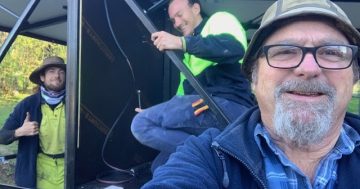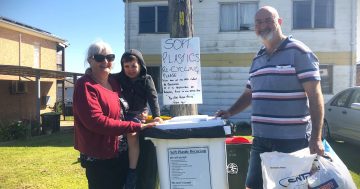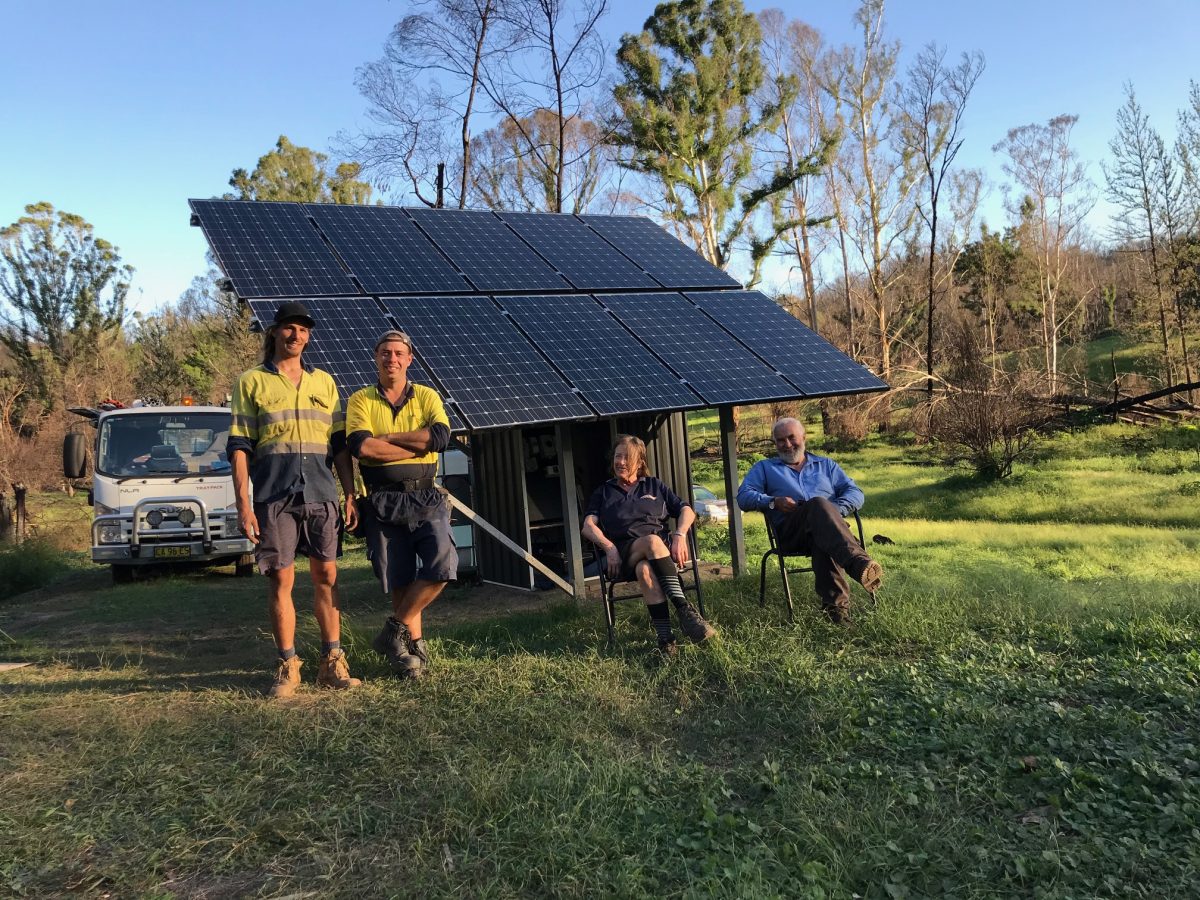
RfR installed a small rural off-grid system for the Nash family at Reedy Creek to provide power to their makeshift caravan after their home was destroyed in the Black Summer Bushfires. Photo: Repurposing for Resilience Eurobodalla.
A huge number of functional solar panels are being discarded well before their time, but a Eurobodalla-based organisation is finding creative ways to recycle panels to provide power for community facilities and bushfire impacted families.
The Repurposing for Resilience (RfR) team of volunteers has also reused discarded solar panels to build garden furniture that can charge your mobile device, dog kennels with heat mats and an alfresco barbecue awning that powers lights and an under bench fridge.
RfR vice president Dr Robert Guth said the initiative was a win-win for the community and the environment.
“The idea is in direct response to the solar industry’s rapid technological growth, the rate of uptake of PV solar in our region and the obvious lack of foresight or commitment to developing a management strategy for the industry’s waste,” Dr Guth said.
“Removing working solar panels before they have repaid the environmental costs associated with manufacture, transportation and installation results in a net environmental deficit not a net environmental benefit.
“The behaviours associated with throw away consumerism and its negative impacts on our environment need to be addressed by our communities if we are to leave a world in a condition fit for our children to live in.”
The RfR not-for-profit social enterprise is focussed on the Eurobodalla Shire and neighbouring areas, but group president Stephen Cornthwaite hoped the initiative would inspire and guide other communities to start their own solar panel re-use programs.
“For the concept to have any integrity the work of collecting, testing, sorting and redistribution of second hand solar panels needs to have as little embedded environmental costs as practicable,” he said.
“The work can create local employment whilst keeping travel and transport expenses to a minimum.”
Dr Guth said there had been a rapid increase in the number of functional solar panels being discarded well before their end of life, and most were being dumped in landfill or shipped out as waste to third world countries.
Eurobodalla Shire Council recently facilitated an area for used solar panels at the Brou Waste facility, however constituents are charged a fee of $10 per panel for disposal.
While efforts have been made to set up heavy industrial materials recycling facilities around the country to thermally deconstruct panels and recover recyclable components, this involves transporting used panels over large distances and stockpiling until there are sufficient quantities to be economically viable.
“Whilst this response should be commended, and is an excellent outcome for panels that have reached their end of life, it is not the best possible outcome for the majority of panels that are removed while still functioning as intended,” Dr Guth explained.
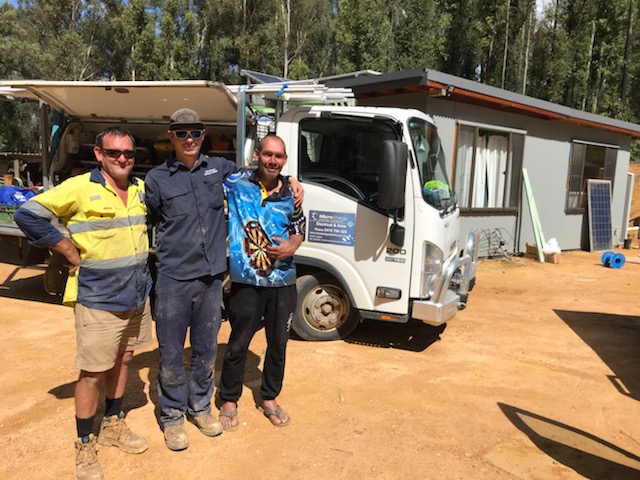
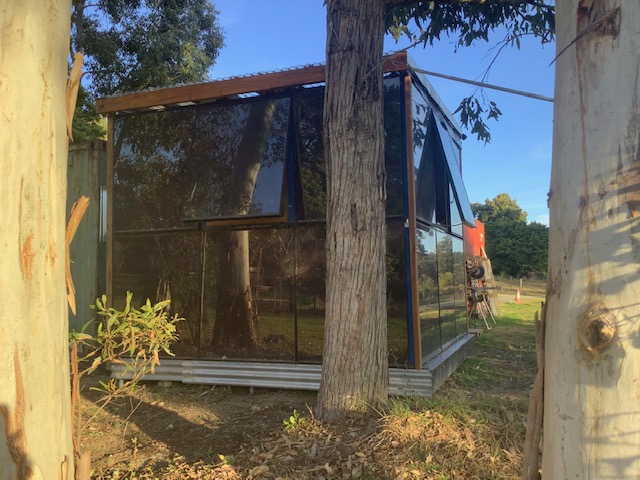
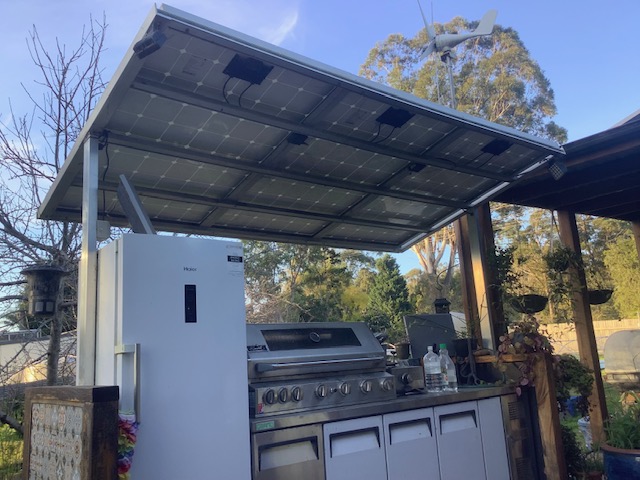
The RfR initiative seeks to offer a working solution and alternative to the destruction of used working solar panels by a “throw-away” society.
More than 540 panels and the majority of racking and the balance of systems that have so far been recycled have come from residential households in the Eurobodalla upgrading or expanding existing solar systems.
Mr Cornthwaite said individuals and community groups in the Eurobodalla region could be part of the solution by getting involved with the initiative and finding creative uses for solar panels that have been tested as still being fit for purpose.
“The applications are only limited by imagination,” he said.
“We are currently calling out for volunteers, community groups and artisans to work with us to contribute to a range of different areas including administrative, accounts, advertising and media, processing, building and design works.”
Since the Black Summer Bushfires, RfR has assisted community members in need, with discarded solar panels installed for several households who lost their homes.
The team installed a small rural off-grid system for a couple at Reedy Creek to provide power to their makeshift caravan and an off-grid residential system was installed for an Indigenous artist at Mogo.
Recycled panels have also been used to power an electric golf kart charging station, irrigation pumps and a trailer for battery-driven gardening equipment.
Residents help reduce solar panel waste by dropping off their used panels and associated solar waste to the RfR Bodalla site, and can consider purchasing used panels which have been tested as still being fit for purpose.
The RfR Initiative is negotiating funding with a well-known environmental organisation to assist with the establishment of processing and training facilities and continues to apply for government and other funding to support the initiative.
Find out more about the project or get involved via the RfR website.







